

My name is Alex Trotsenko, I am one of the founders and managers of the outsourcing company AgainAgain
Good afternoon! My name is Alex Trotsenko, I am one of the founders and managers of the outsourcing company AgainAgain, operating in North America and Western Europe. Besides other things, we conduct targeted searches for leads to attract new clients and prepare business meetings by sending out cold letters.
During my time working in outsourcing, I managed to accumulate considerable experience, allowing my messages not to turn into spam, but to convey to the recipients the proposals expressed in them. And today I would like to share it with you. Neither blogging nor writing articles are, in principle, my hobbies, but if my knowledge can be useful to someone to promote their own business, why not do it? So let's talk today about the so-called cold letters, which, with the right approach, will help you significantly expand your b2b client base without spending financial and human resources.
It's no secret that a cold letter found in an email inbox is more annoying than it makes you want to immediately read its contents. You understand in advance that you will see template phrases and a lot of water in which useful information will drown, and therefore in most cases, without opening it, you send the message to the trash. Or you read it, become convinced that your assumptions are correct, and get rid of the letter again.
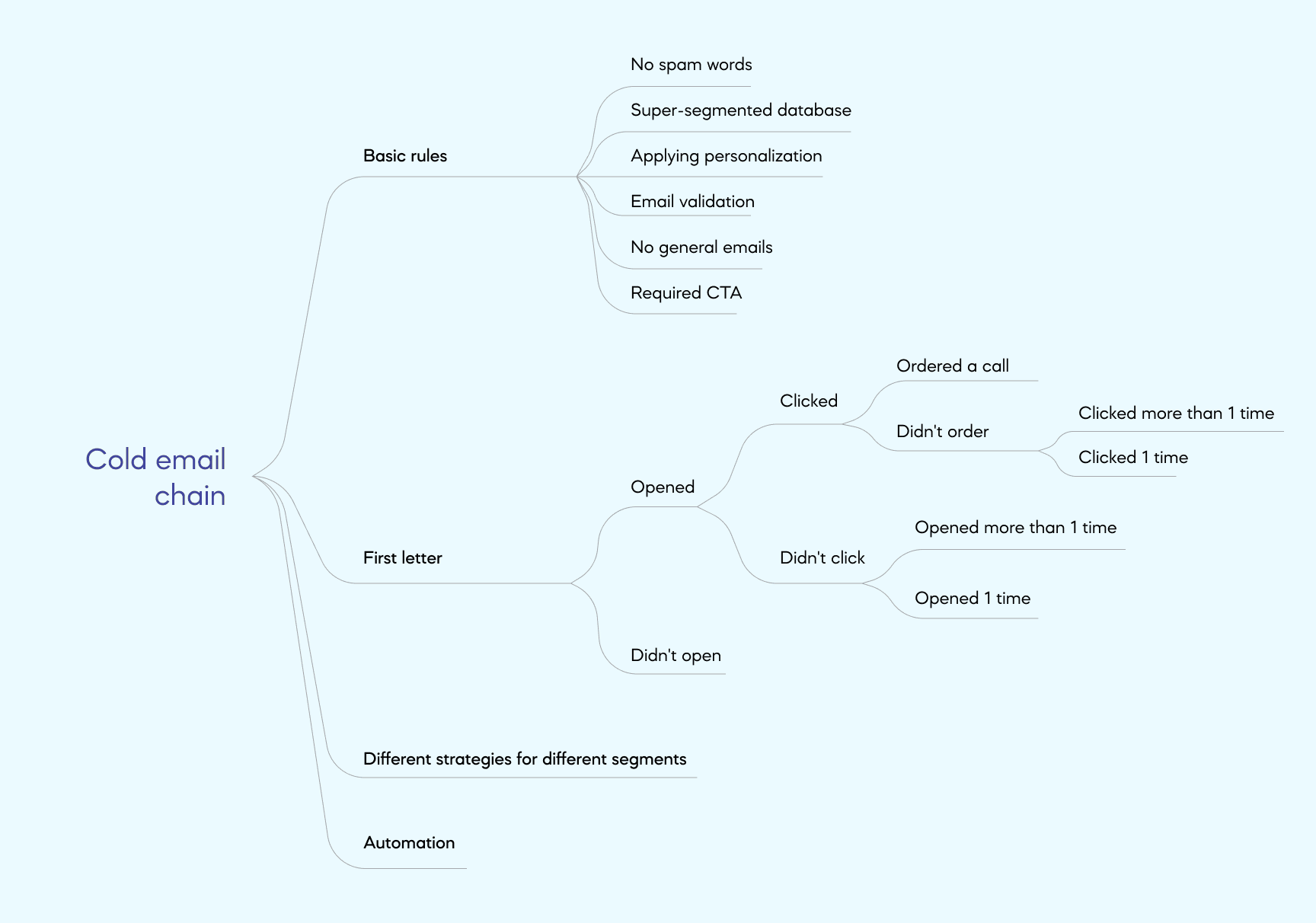
I’ll share my personal experience: I have interviewed about seven hundred managers of SMB companies, whom I have asked about cold letters as well. The answer has always been disappointing: the lion's share of them do not bring results.
Oh, how many such messages I have sent myself! How many of them were either completely ignored or read, but without any result! Moreover, this often happens now, but today the ratio between letters that were useful and those that were written in vain has pleasantly changed in favor of my company. I want to tell you how I achieved this.
But first of all, just a few more words about the importance of email. Many believe that this is a dead end, because calling or using a messenger to send a message is faster and more reliable. I can confidently say: no. The mail still remains one of the main corporate methods of communication in the countries of the “golden billion”. If you want to succeed, write letters. And the more letters you write, the higher the chance of success is.
Step one: define your audience
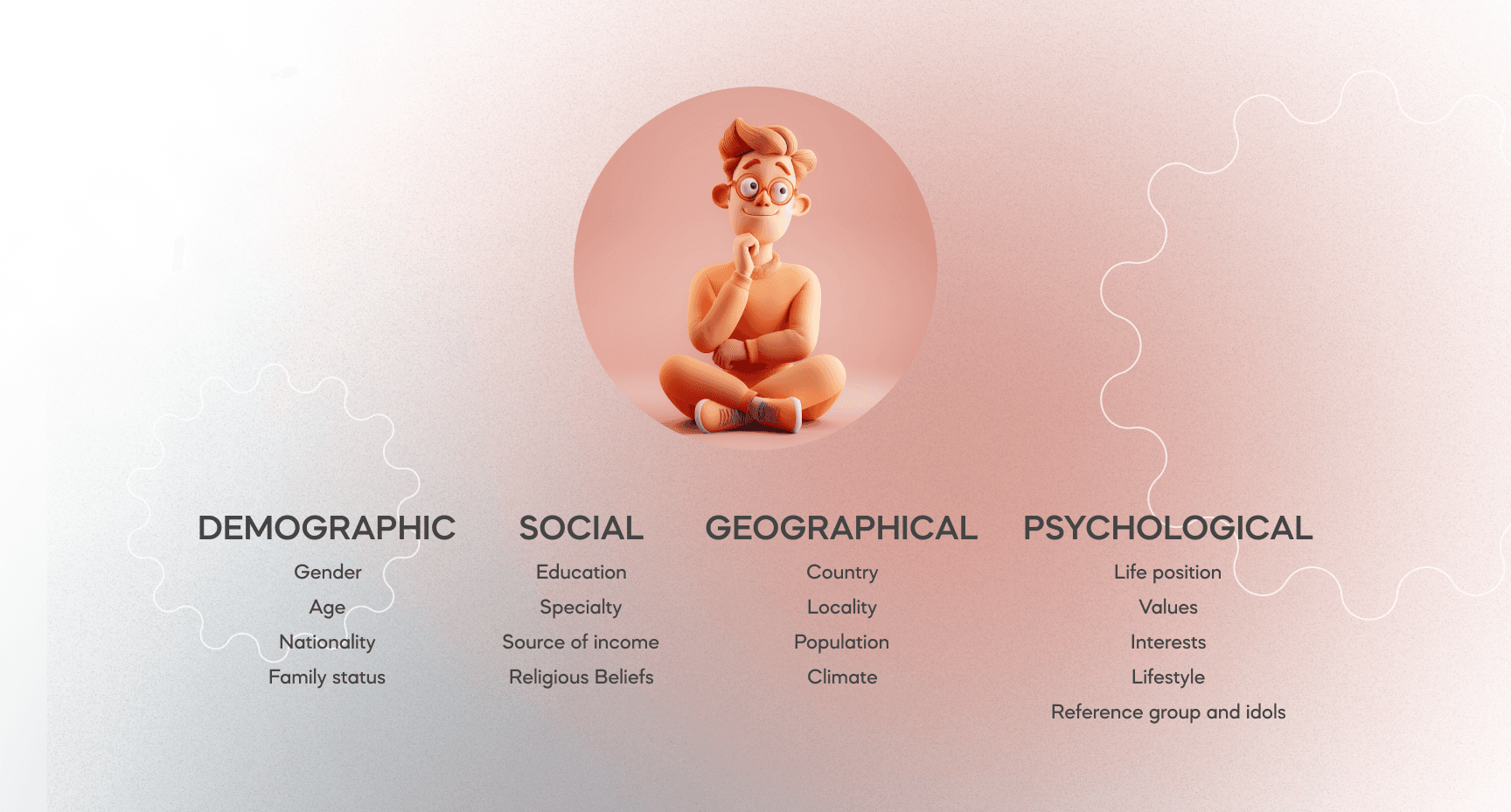
Work as James Bond by compiling a complete dossier on your potential recipient. Consider the specifics of the company’s field of activity, geographical location, its size and turnover, number of employees and current vacancies. Pay special attention to the person who will receive your letter and, accordingly, decide his fate. The more detailed you study the client, the better you will understand how to interact with him.
My company has developed a special “Google Form” into which the client enters his data before starting work, this is very helpful. At first, I'm embarrassed to say, I used a slightly modified template I found on the Internet. Yes, yes, I have typed into the search engine “The best b2b-email templates” and opened the first article relevant to the topic, as I remember now “8 great email newsletters that you will remember for a long time.” True, now there is a different text, written by an obvious graphomaniac, but that is not the point. The main thing I want to say is that you can be inspired by patterns, but you can’t take them as a basis. My only justification was my lack of experience at that moment, so the response silence was natural.
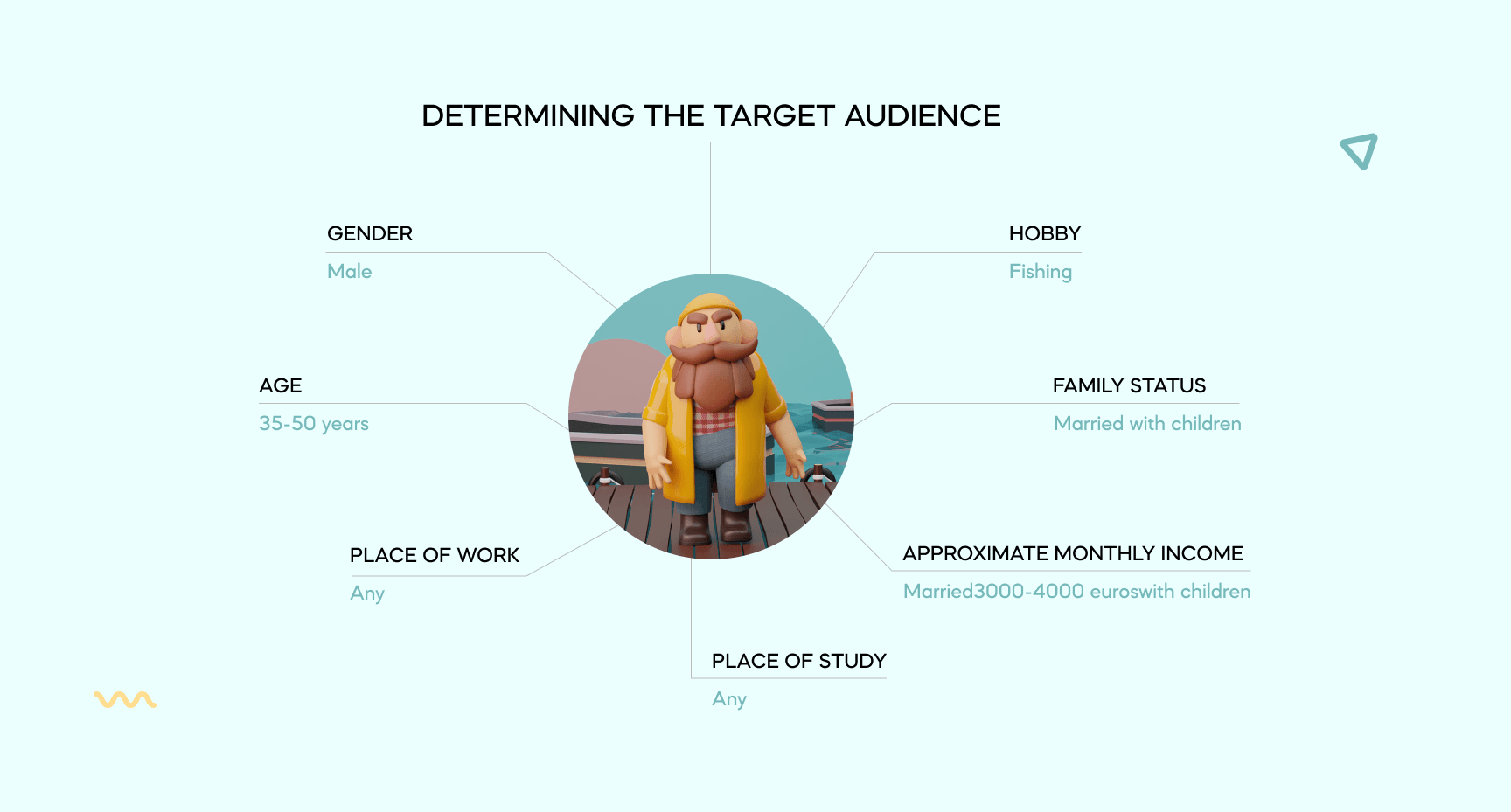
Nowadays I use various tools to get an idea of the company’s financial capabilities, the effectiveness of its CEO, and obtain web analytics data: LinkedIn Navigator, Glassdoor, Crunchbase, Angel.co, the company’s own websites and the pages of its leaders on social networks. Any insights are good. This allows you not only to choose a promising client, but also to build a style of communication with him.
Step two: create a database of mailing addresses
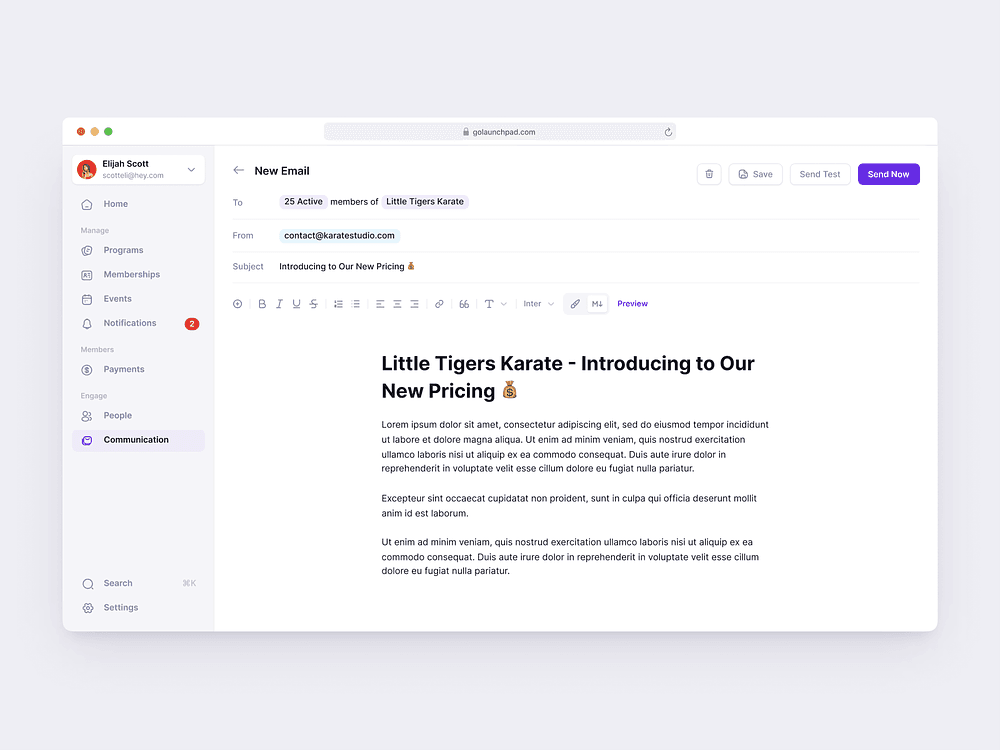
To buy ready-made ones is not an option. More than half of the addresses in it will probably turn out to be invalid, and the rest will not produce many results, but if you bet on quantity, you risk being identified by the provider as a spammer and getting banned. The situation is not much better with parsers, ready-made or self-written.
Manual search would be a great option, effective and free, if it did not take a lot of time and effort. Believe me, I know what I'm talking about, I happened to go through this. In fact, you will have to give up any other activity for a long time or relieve your sales managers of it, which, of course, is not good.
I would recommend a manual search, outsourced to specialists who will quickly present you with an extensive list of leads in accordance with the parameters selected in the first step. This is an ideal solution because it:
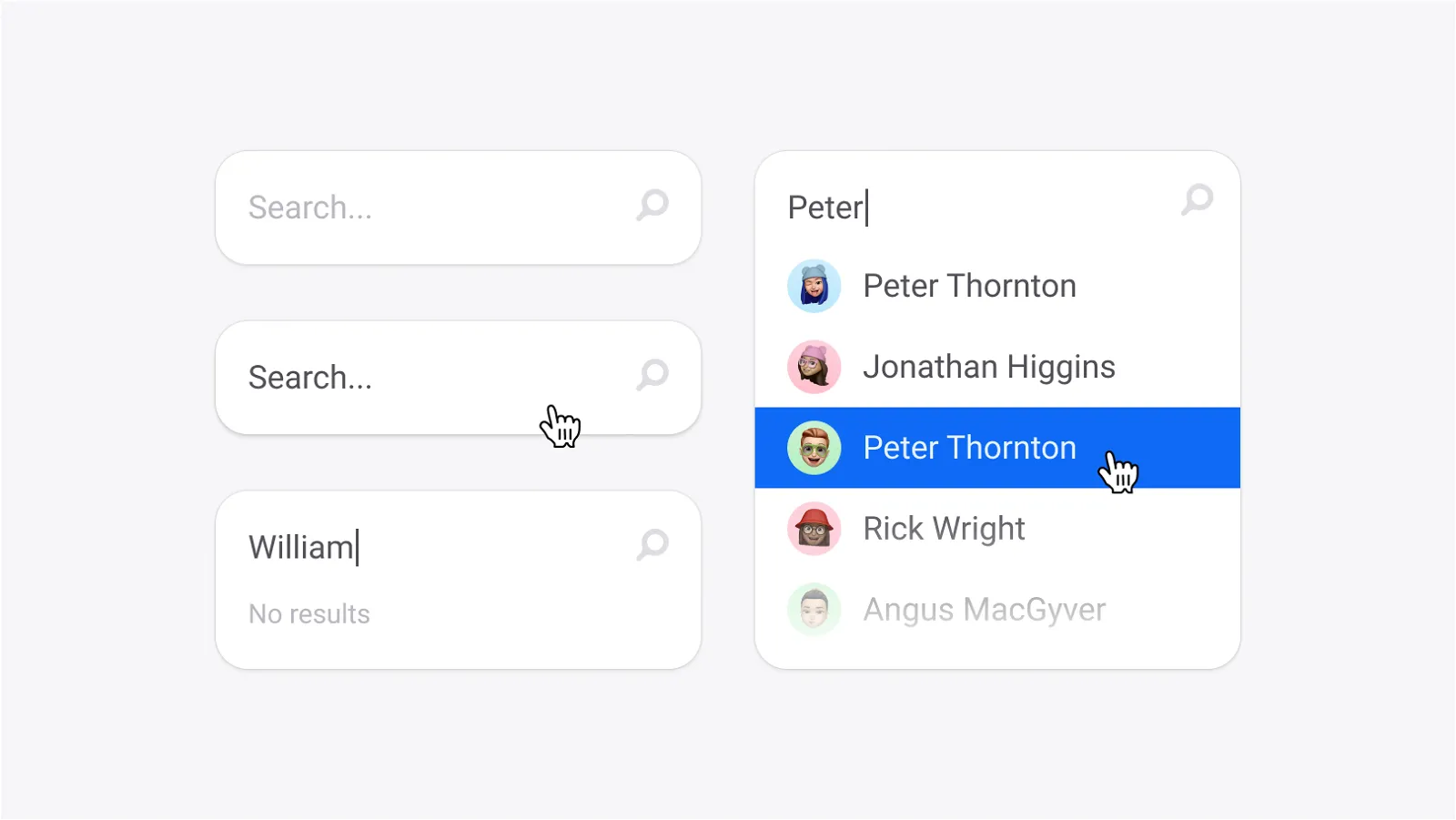
- does not require you to immerse yourself in the process to the detriment of your business;
- eliminates the need for explanations with managers regarding missed deadlines and quotas;
- guarantees the quality of the final product at a cost 3-4 times lower than what you would have to pay if you hired your own staff of basic workers.
So outsourcing in this case is really the optimal solution, allowing you to get results without unnecessary delays and pay professionals for their work based on the fact, and not for the number of hours spent in the office.
Step three: choose a subject of the letter
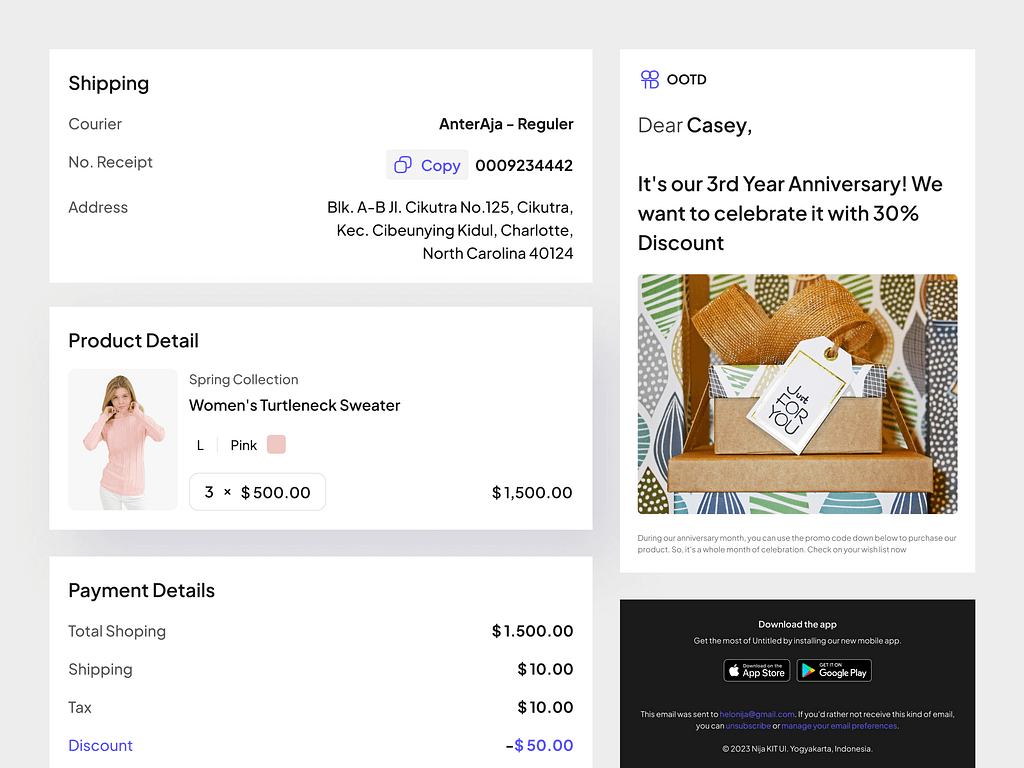
This is the most important part of the message and will determine whether your letter will be opened in principle. Avoid outright spam (free, promotion, etc.), aggressive attempts to push your product or service, clickbait topics – all this will push the recipient away from you. Also, do not use false information; it will put an end to cooperation, even if at first they are interested in your proposal.
Write the topic clearly and concisely, immediately noting the essence: proposal for cooperation, scheduling meetings, arranging a call, etc. The title of the email, which became my first serious success, read: "Positive reviews on Google for {Name of the company}". Is it ambitious? But I really had a well-thought-out proposal with a strong foundation ready; all that remained was to present it competently.
For myself, I made a clear conclusion: it is the header that is responsible for opening emails, so first of all we try 10 options until there are 1-2 best, perfectly verified ones left.
Step four: compose your text
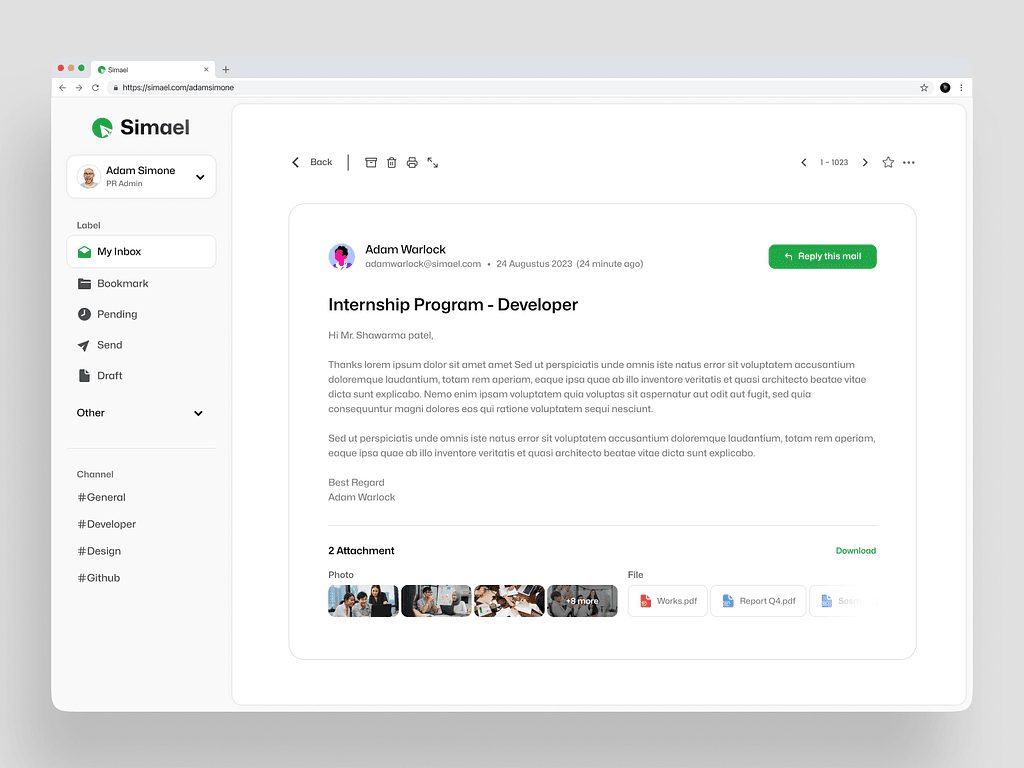
Write briefly – 2-3 paragraphs, 5-6 sentences. No one will read a long text from a person about whom they still know nothing. Use a neutral greeting – “Hello, Dear”.
Go straight to a specific topic: “I would like to discuss...”, “I am writing to you about...”, “My proposal is as follows...”
In a business letter, you shouldn’t use phrases like “Sorry for interrupting you from your work...” You don’t interrupt. You are doing your job.
Try to convey to your interlocutor the value of your commercial offer. Give numbers, names and examples. Right after the greeting and my name, I wrote: “Our company offers a proven strategy to ensure growth in the number of clients of an enterprise and increase its rating. Thanks to cooperation with us, Texas Real Estate & Co expanded their presence in the market by 160% and Brew Lab by 180%...” And it worked because they were not vain promises of unrealistic profits, but real facts.
End the letter with a call to action, leading the recipient to think about next steps. It should be unobtrusive but clear:
- “If our proposal interests you, we are ready to meet you this week” – without specific dates, you have given a pass and are waiting for a response.
- “I suggest calling tomorrow or on Tuesday at 2.00 p.m., if it is convenient for you, to discuss cooperation” – a person will most likely respond to a direct and polite request.
- “Please let me know if there is room in your schedule for Wednesday from 9 to 10 a.m. or 5 p.m.” – the important thing here is to make the recipient take a look at his calendar, so he will probably find a place in it for you.
- “I would be grateful if you let me know who in your company I could discuss this issue with” – works quite often and helps when you are not sure who exactly you should focus your efforts on to achieve your goal.
It’s important to remember: you’re writing a cold letter, not advertising actively, so discard frankly marketing ploys immediately.
Step five: format the letters
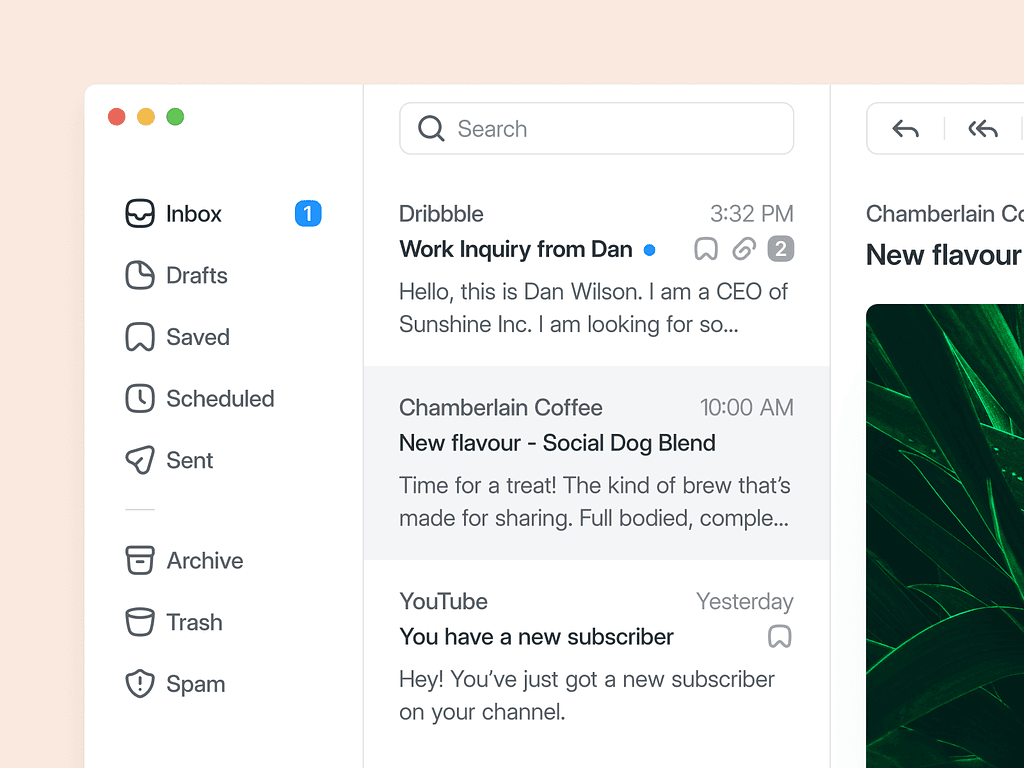
No fancy fonts, pictures, hyperlinks, highlighting, HTML! You are not creating a presentation, so only plain text – businesslike, concise and understandable.
Evaluate what is written from the point of view of the person who will receive the letter. How clear is your idea? Doesn't it need clarification? Isn't it drowning in tons of water? Only when you are convinced that everything is written correctly you can proceed to sending it.
This is the result of my work:
Subject of the letter: Positive reviews on Google for {Name of the company}
Hello, {Name}!
I would like to contact the person responsible for your company's marketing. I'm guessing this is you?
Our company offers a proven strategy to ensure growth in the number of clients of the enterprise and increasing Q3 rankings on Google services. By working with us, Texas Real Estate & Co has expanded its presence in the Texas market by 160% and Brew Lab – by 180% in less than a year, along with dozens of other businesses.
I am sure that our cooperation would be mutually beneficial and effective. I would be grateful if you let me know who in your company I could discuss this matter with.
Thank you very much,
{Name}
This letter, written after long preparation, rewritten and refined many times, brought my company 816 leads. Agree, it was worth the effort.
That's probably all. I tried to present my thoughts as briefly as possible so as not to get lost in reasoning. I hope you find them useful. If you want to speak in the comments, I will be glad to hear your opinions, and also to know if you want to read about my experience in follow up, scheduling meetings, and processing mail. It's quite extensive because promoting AgainAgain Agency in the early days made me spend many hours writing, polishing and sending emails, and also allowed me to develop excellent communication skills with clients and investors. Even today, when our reputation begins to work for us, and the growing staff of specialists has relieved me of some of my previous responsibilities, I am still using the experience I gained. If you have any questions, write, I will try to answer.
